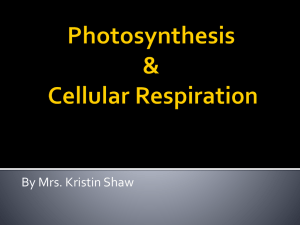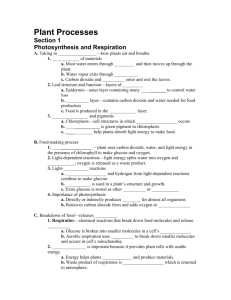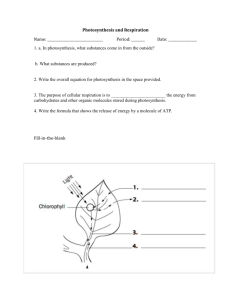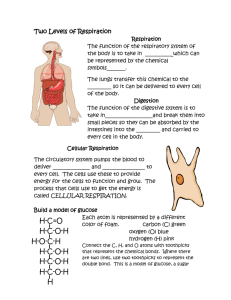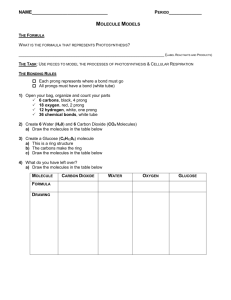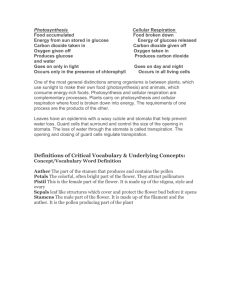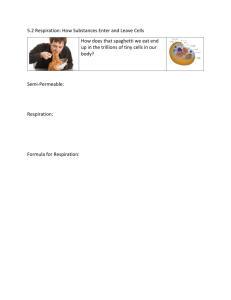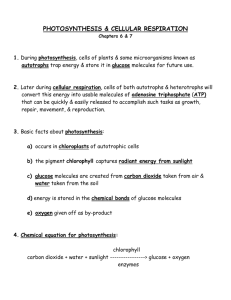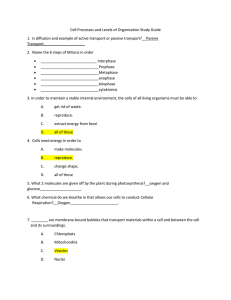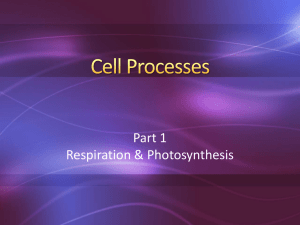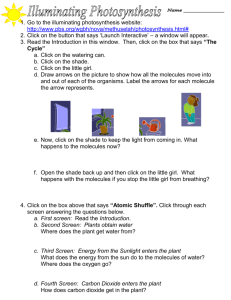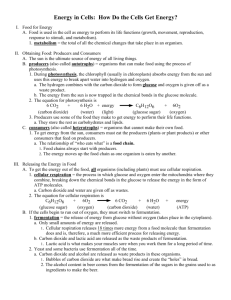Packet: Photosynthesis & Cellular Respiration Outline & SRQ's
advertisement
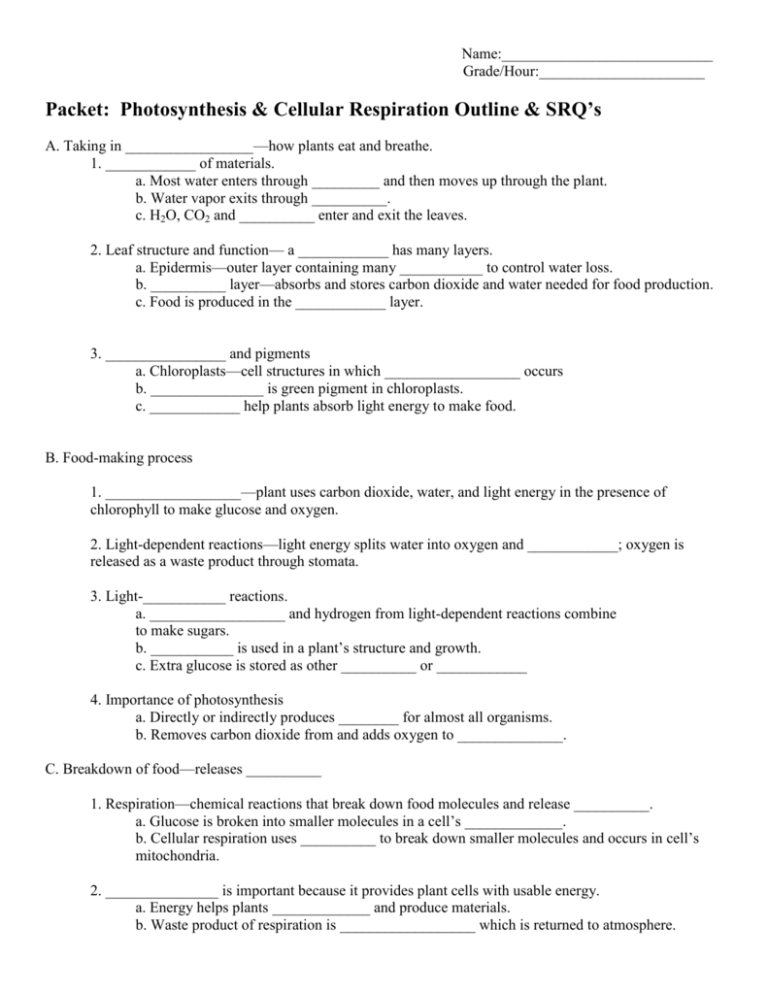
Name:____________________________ Grade/Hour:______________________ Packet: Photosynthesis & Cellular Respiration Outline & SRQ’s A. Taking in _________________—how plants eat and breathe. 1. ____________ of materials. a. Most water enters through _________ and then moves up through the plant. b. Water vapor exits through __________. c. H2O, CO2 and __________ enter and exit the leaves. 2. Leaf structure and function— a ____________ has many layers. a. Epidermis—outer layer containing many ___________ to control water loss. b. __________ layer—absorbs and stores carbon dioxide and water needed for food production. c. Food is produced in the ____________ layer. 3. ________________ and pigments a. Chloroplasts—cell structures in which __________________ occurs b. _______________ is green pigment in chloroplasts. c. ____________ help plants absorb light energy to make food. B. Food-making process 1. __________________—plant uses carbon dioxide, water, and light energy in the presence of chlorophyll to make glucose and oxygen. 2. Light-dependent reactions—light energy splits water into oxygen and ____________; oxygen is released as a waste product through stomata. 3. Light-___________ reactions. a. __________________ and hydrogen from light-dependent reactions combine to make sugars. b. ___________ is used in a plant’s structure and growth. c. Extra glucose is stored as other __________ or ____________ 4. Importance of photosynthesis a. Directly or indirectly produces ________ for almost all organisms. b. Removes carbon dioxide from and adds oxygen to ______________. C. Breakdown of food—releases __________ 1. Respiration—chemical reactions that break down food molecules and release __________. a. Glucose is broken into smaller molecules in a cell’s _____________. b. Cellular respiration uses __________ to break down smaller molecules and occurs in cell’s mitochondria. 2. _______________ is important because it provides plant cells with usable energy. a. Energy helps plants _____________ and produce materials. b. Waste product of respiration is __________________ which is returned to atmosphere. D. Comparing photosynthesis and respiration—_______ processes. 1. Photosynthesis, occurring only in cells with _______________, combines carbon dioxide and water. using light energy and releases glucose and oxygen. 2. Cellular respiration occurs in mitochondria of all cells and combines __________ and food to release __________, carbon dioxide, and water. Packet SRQ’s 1. Describe how gases enter and exit a leaf? __________________________________________________________________________________________ __________________________________________________________________________________________ __________________________________________________________________________________________ __________________________________________________________________________________________ 2. Identify what must happen to glucose molecules before cellular respiration begins. __________________________________________________________________________________________ __________________________________________________________________________________________ __________________________________________________________________________________________ __________________________________________________________________________________________ __________________________________________________________________________________________ 3. Explain how plants contribute to humidity. __________________________________________________________________________________________ __________________________________________________________________________________________ __________________________________________________________________________________________ __________________________________________________________________________________________ __________________________________________________________________________________________ 4. How many CO2 molecules results from the breakdown of a glucose molecule (C6H12O6)? _____________
